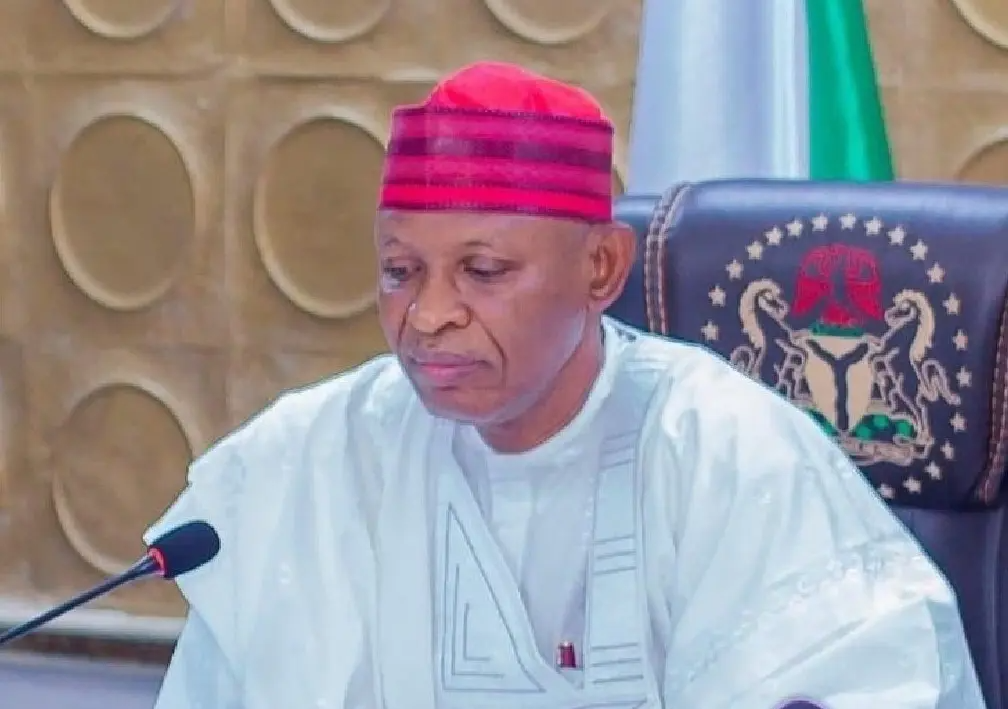The Supreme Court decision is a major setback in the quest for real development in a country bedeviled with the challenges of nationhood. Emphasis should shift from revenue allocation to generation. Let each geo-political zone concentrate on its area of comparative advantage and pay taxes for maintenance and sustenance of a central government of manageable size, and not this current behemoth. The Federal Government cannot be gobbling 52 per cent of the national earnings and still legislate on how the States are run. The much celebrated victory will be Pyrrhic in the long run.
The latest judgement of the Supreme Court of Nigeria on the case instituted by the Attorney General of the Federation against the 36 State Governors has, expectedly, generated an instant myriad of reactions, on all the sides of the political cleavages which pundits find themselves.
There appears to be a unanimity of opinion on the ratio, as presented by the counsel who addressed the press after the judgement was delivered. The gravamen of the complaint, placed before the apex court for adjudication, borders on the peddled notoriety and recklessness of the 36 State Governors with regard to the federal allocations to the 774 local governments in the country. The learned Justices of the Supreme Court, according to the lawyer, interpreted the provision of Section 162 (3) of the 1999 Constitution, as amended in 2023, through the Fifth Alteration, to arrive at the decision.
This Section goes as follows: “Any amount standing to the credit of the Federation Account shall be distributed among the Federal and State Governments and the local government council in each state on such terms and in such manner as may be prescribed by the National Assembly.”
Section 162 (8) continues: “The amount standing to the credit of local government council of state shall be distributed among the local government councils of that state on such terms and in such manner as may be prescribed by the House of the State.”
From the foregoing, the Supreme Court, exercising its jurisdiction as a court of policy, pronounced on the mode of disbursement and, definitely, not the adornment of the local government council with borrowed but expedient robes, regardless of the attraction. Therefore, the wild jubilations and specious and sudden embrace of the values of propriety and probity, by even the most notorious of villains, are evidently misplaced.
It is only decent that all good people should join in extending, liberally, a well-deserved adulation to the Supreme Court Justices for rising to the occasion at this crucial moment in our quest for nation building. We must, however, throw in this caveat to guide against an omnibus application of a simple directive predicated on the fulfilment of a condition precedent. The Lord Justices directed that only the Local Governments with “democratically elected councils” should receive federal allocations. The determination of the councils qualified for the new grace is objective, however flawed the processes of the emergence of the so called democratically elected chairmen might have been. The judgement is a direct indictment on the local tyrants called Governors.
Nigerians need credible journalism. Help us report it.
PREMIUM TIMES delivers fact-based journalism for Nigerians, by Nigerians — and our community of supporters, the readers who donate, make our work possible. Help us bring you and millions of others in-depth, meticulously researched news and information.
It’s essential to acknowledge that news production incurs expenses, and we take pride in never placing our stories behind a prohibitive paywall.
Will you support our newsroom with a modest donation to help maintain our commitment to free, accessible news?
The preponderant belief in the likelihood of continued misappropriation of funds allocated to the local governments by the State Governors is, ostensibly, persuasive and compelling. The sanctimonious claim of the functionaries of the Federal Government, however, coupled with the boisterous and exigent support they are receiving, revolves round the charge of the denial of development at the grassroots by the Governors, through their fabled recklessness. No assertion can be too distant from the glaring realities on the ground as this manifestly dubious and hypocritical posturing.
This intervention is not intended to support the brazen theft associated with public officials, especially the Governors. It is expedient that we present a broader picture in the gamut of tales on bad governance in the Nigerian space. The ubiquity of corrosive and pervasive corruption should cause some introspection in order to determine the fundamentum of this perversity. The Nigerian state is neither Federal nor Unitary. Great countries explore new means of creating wealth. They don’t just preside over a bazaar to share the loots captured from hapless sub-nationals and regard such disgrace as governance.
The major role of the Federal Government should not be restricted to sharing revenue among the three levels of government, even if this oddity is accepted as a norm. Each State should be encouraged to assume, fully, its potential to explore and direct its affairs in the best way possible, deliberated and decided upon by its local representatives. Above all, the exploration and utilisation of the resources, lying and situated in a State, should be the prerogative of the peoples in whose territories they are buried.
The President of Nigeria superintends over 52 per cent of the revenue accruable to the Federation. Many appointees at that level, including the current ones, have been accused of corruption involving humongous amounts of money. Successive governments at the centre have been unable to account for the sale of the country’s crude oil till date. Section 162 (2) empowers the President to act on the advice of the Revenue Mobilisation Allocation and Fiscal Commission on how to share the revenue practically grabbed from the States of the Federation by virtue of the warped system currently espoused. He takes a proposal to the National Assembly on the sharing formula based on the prescribed “allocation principles especially those of population, equality of States, internal revenue generation, land mass, terrain as well as population density:…”(sic)
Flowing from this is the inescapable deduction of the presence of an imperial presidency with the State Governors acting as the Praetorian Guards who must act at the pleasure of the Emperor. The National Assembly exists mainly as the appendage of the Presidency, which stands to assert its independence only when the obscenities called privileges enjoyed face the prospects of downward adjustments. Federal agencies lean, heavily, on the necks of the States in a manner which defeats ingenuity and treats the claims to sharing any affinity with federalism as a political concept as a tragic travesty.
The major role of the Federal Government should not be restricted to sharing revenue among the three levels of government, even if this oddity is accepted as a norm. Each State should be encouraged to assume, fully, its potential to explore and direct its affairs in the best way possible, deliberated and decided upon by its local representatives. Above all, the exploration and utilisation of the resources, lying and situated in a State, should be the prerogative of the peoples in whose territories they are buried. The espousal and promotion of an arrangement which limits governance to the payment of salaries and subventions in the States of the Federation is disingenuous and retrogressive.
It is not surprising that supporters of the current administration consider this judicial decision as a landmark victory for their principal, who, presumably, is desirous of development in the entire country. The unambiguous suggestion that the provision of Section 162 (6) has been expunged from the 1999 Constitution appears to be of little or no significance. No phenomenon represents a gross misapprehension of issues, the most immediate being the idea of federalism, including its fiscal corollary, than the belief that a local government can be autonomous and operated as a separate tier of government in a Federal system. It is not only an aberration. It is a major reversal of the little distance covered in the bid to establish the heterogenous identity of the polity.
Granted that the existence of the local government is guaranteed by virtue of Section 7 (1), it cannot be the intendment of the drafters of the Constitution that the Supreme Court should perform the role of the legislature. It can only interpret the law to put to effect the purpose of the Constitution. This position is well captured in the Supreme Court judgement in AG Abia State v AG Federation (2006) 16 NWLR (Pt. 1005) 265 at 411-412. Per Oguntade JSC, had this to say on where the power to control Local Government Councils resides:
“It is my view that the intendment of the provisions in the 1999 Constitution is to grant power and autonomy to a State Government in its relationship with Local Government Councils in a State and to subordinate Local Government Councils to a State Government. This, in my view, explains why sections 7(6) and 162 (5) of the Constitution only give the power to allocate funds from the federation account to a Local Government Council to the National Assembly through a State, and further to leave the distribution of such funds to the State Government while confining the National Assembly only to allocation of funds…”
The various tendencies, veritable evidence of heterogeneity, actualise their full potential not through statutory handouts from the central government. The varied areas of comparative advantage were considered in the pre-independence era when regionalism was experimented as a political system. At independence, the 1960 Constitution bequeathed by the departing colonialists, recognised and upheld this fact of divergence.
The 1963 Republican Constitution, a truly autochthonous document, reaffirmed not only the fact of difference, it created a new region, the Mid-Western Region, carved out of the old Western Region. That happened at a period when there was a semblance of popular participation. The Regions had their own constitutions drawn to reflect divergence. The judiciary exercised considerable independence. Each Region developed at its own pace. The competition among the Regions was healthy. It achieved remarkable results.
Anybody imbued with a modicum of knowledge concerning political concepts should not miss the point on the propriety of having an arrangement which pretends to treat the local government as a separate tier in a federal system of government. While the less perspicacious may be pardoned for the hasty embrace of the judgement without bordering to read the full text, its egregious celebration as victory for the common man is misleading and dishonest on the part of those who should know but have chosen to follow the bandwagon.
The 1960 and 1963 Constitutions operated a truly Federal system which had the Federal and the Regional Governments. in addition, each Region had its distinctive Constitution wherein matters on the Concurrent and Residual Lists were provided for, almost exclusively. Local authorities were the business of the Regions, which also had the prerogative to initiate moves to create new territories in accordance with the provisions of the Federal Republican Constitution. This was the political order which the promulgation of Decree 34 of 1966, the so called Unification Decree introduced by the military government after the assassination of prominent political and military leaders in the Northern and Western Regions, abrogated. That Decree introduced a unitary system. All subsequent actions taken afterwards have trodden that obnoxious path till this moment.
The creation of 12 States in 1967 to weaken Lt. Col. Odumegwu Ojukwu’s resolve to insist on the Aburi Agreement on Confederacy brought in the vacuous geographical entities of artifices, shorn off identity, which have mutated into 36 States, emasculated pseudo-sub nationals, non-productive and utterly dependent burdens. The introduction of the so-called local government reforms of 1976 and the inclusion of the same into the 1979 Constitution by the military regime of General Olusegun Obasanjo, followed the same pattern of over-centralisation of governance since the unfortunate misadventure of the military in 1966, culminating in the subsequent adoption of this oddity in the 1999 Constitution, as amended. The States of the Federation are not sovereign entities. Governors are treated worse than school prefects.
The spontaneous ululations from seeming opposing camps of the political divide ignore the inherent danger against not only the development of the country, the much vaunted reason for the din on the necessity for the grassroots politicians to possess the capacity to act independently and be able to spend money without let or hindrance. It discounts, regrettably, the possibility of future and certain stasis. The claims by major functionaries of the Federal Government on restructuring will appear hypocritical and deceitful. This step will consolidate on the stranglehold which the current 1999 Constitution, as amended, exacts on the States of the Federation.
While the government and its spokespersons make too much issue of the need for the fiscal autonomy of the local governments, they have been, decidedly, mute on the issue of resource control. How else can one describe ingrained hypocrisy than this display of equivocation? Why should the Federal Government and its agents appropriate the resources of the federating units and determine how to spend same? What is the business of these interlopers in how states run their local governments, in as much as they adhere strictly to constitutional provisions? What institutions and/or agencies monitor the President and his appointees apart from the lethargic National Assembly and its creations?
Anybody imbued with a modicum of knowledge concerning political concepts should not miss the point on the propriety of having an arrangement which pretends to treat the local government as a separate tier in a federal system of government. While the less perspicacious may be pardoned for the hasty embrace of the judgement without bordering to read the full text, its egregious celebration as victory for the common man is misleading and dishonest on the part of those who should know but have chosen to follow the bandwagon.
The Supreme Court decision is a major setback in the quest for real development in a country bedeviled with the challenges of nationhood. Emphasis should shift from revenue allocation to generation. Let each geo-political zone concentrate on its area of comparative advantage and pay taxes for maintenance and sustenance of a central government of manageable size, and not this current behemoth. The Federal Government cannot be gobbling 52 per cent of the national earnings and still legislate on how the States are run. The much celebrated victory will be Pyrrhic in the long run.
It is fraudulent to cling to the aberrant theory of local government autonomy in a Federation, while ignoring the more crucial issue of resource control.
Doyin Odebowale writes from Ogere Remo.
Support PREMIUM TIMES' journalism of integrity and credibility
At Premium Times, we firmly believe in the importance of high-quality journalism. Recognizing that not everyone can afford costly news subscriptions, we are dedicated to delivering meticulously researched, fact-checked news that remains freely accessible to all.
Whether you turn to Premium Times for daily updates, in-depth investigations into pressing national issues, or entertaining trending stories, we value your readership.
It’s essential to acknowledge that news production incurs expenses, and we take pride in never placing our stories behind a prohibitive paywall.
Would you consider supporting us with a modest contribution on a monthly basis to help maintain our commitment to free, accessible news?
TEXT AD: Call Willie - +2348098788999


















 English (US) ·
English (US) ·